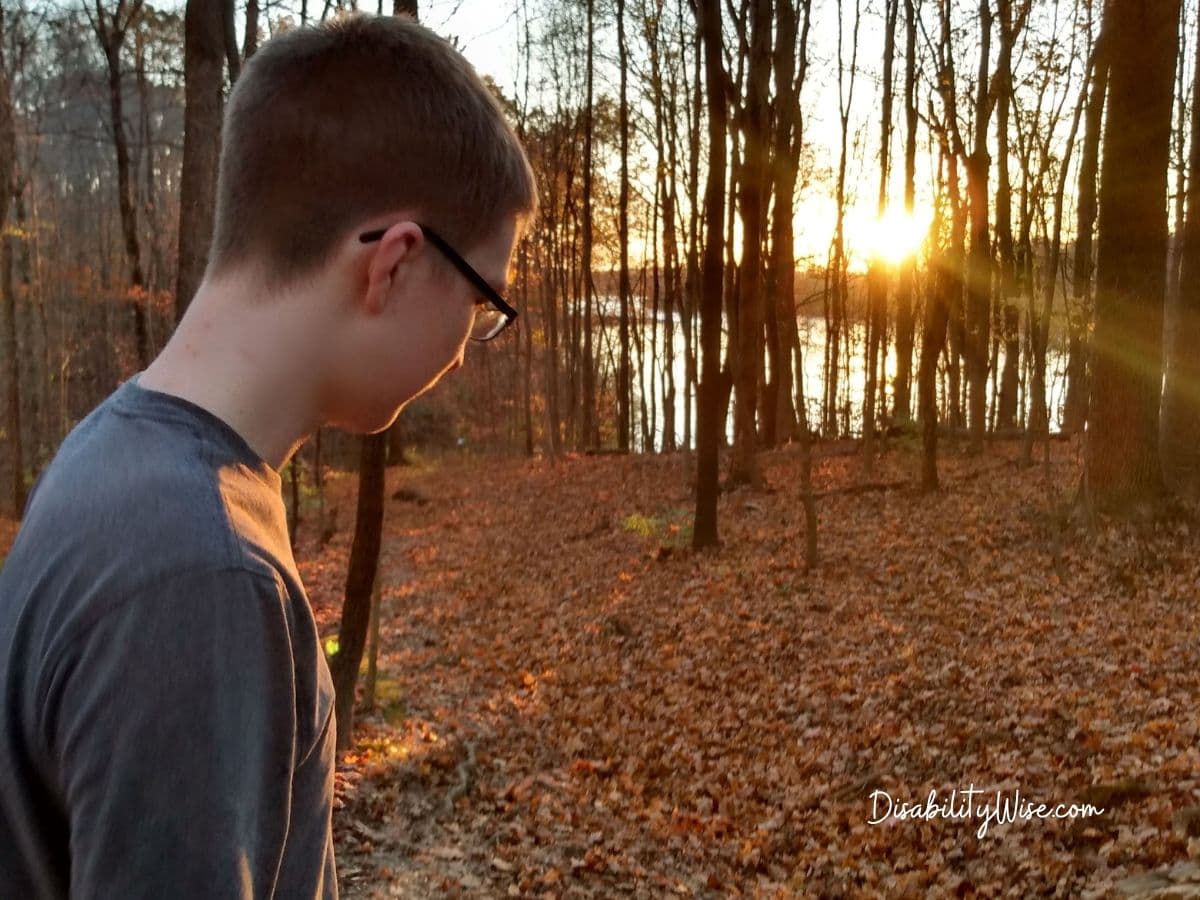Ever dwell on what you could have done differently or how things would’ve been easier if only you’d known XYZ? To be fair, we often don’t know what we need when we’re in the thick of it. It’s not until we’re on the other side of things that we can look back and appreciate the lessons we learned.
Hindsight can be a beautiful thing.
Recently, I reached out to some of my amazing mom friends —strong, wise women who’ve been on this unexpected journey for a while now— (and one super duper dad, my husband 😏) and asked them if they would mind passing on their “If only I’d known” lessons.
Here’s what they had to share:
The Power of Community
Many of the moms said that joining a community totally changed things for them. Connecting with other families going through the same stuff can really give you the emotional support, tips, and resources you need.

Mom of three children on IEPs: “I wish I knew years ago how invaluable community is. Connecting with other families facing similar challenges can provide support and valuable insights. I would not make it without my mom friends!”
Mom of an adult son with complex needs: “I wish I knew I needed to find support, a ‘tribe’, of other families who were on the same journey and got it.”
For other ways to connect, check out these tips.
Self-care is a Must
It’s super common to get wrapped up in looking after your loved one, but don’t forget to look after yourself, too. Remember, you can’t pour from an empty cup.

Mom of a teenage son with a rare chromosome anomaly: I’ve learned it’s ok to take time for myself and not feel guilty. Even if it’s just 10-15 minutes a day. If I don’t recharge and refuel, I will be no good to my son, myself, or my family.”
Mom of two sons with autism: “To care for my boys, I need to make sure to care for myself too…physically, emotionally, and mentally.”
Mom of a teenage daughter: “Looking back, I was SO focused on my daughter that I was exhausted and didn’t have anything left for myself or other family members.”
Check out this post on more ways to prevent caregiver burnout.
Seek Counseling
Counseling provides a safe space for you to express your feelings, fears, and uncertainties without judgment. Remember, seeking help is a sign of strength, and by taking care of yourself, you are better equipped to care for your child.
Mom of two sons with autism: “Six years after our first son was diagnosed with autism, I found a counselor who specialized in parents who have children with disabilities. Before that, I spent years having doubts and thinking that I had done something wrong or had not done enough for my son. I would cry at IEP meetings and parent-teacher conferences. Now, I can complete an IEP meeting with only a moment or two of watery eyes. (I find that a big accomplishment!!). My counselor has also been great for connecting me to local resources.”
Advocacy is Key
Knowing your rights and figuring out the system can be a lot to handle. But by educating yourself, staying informed, and chatting with others who’ve been in your shoes, you’ll be ready to make smart choices and get what your child needs.
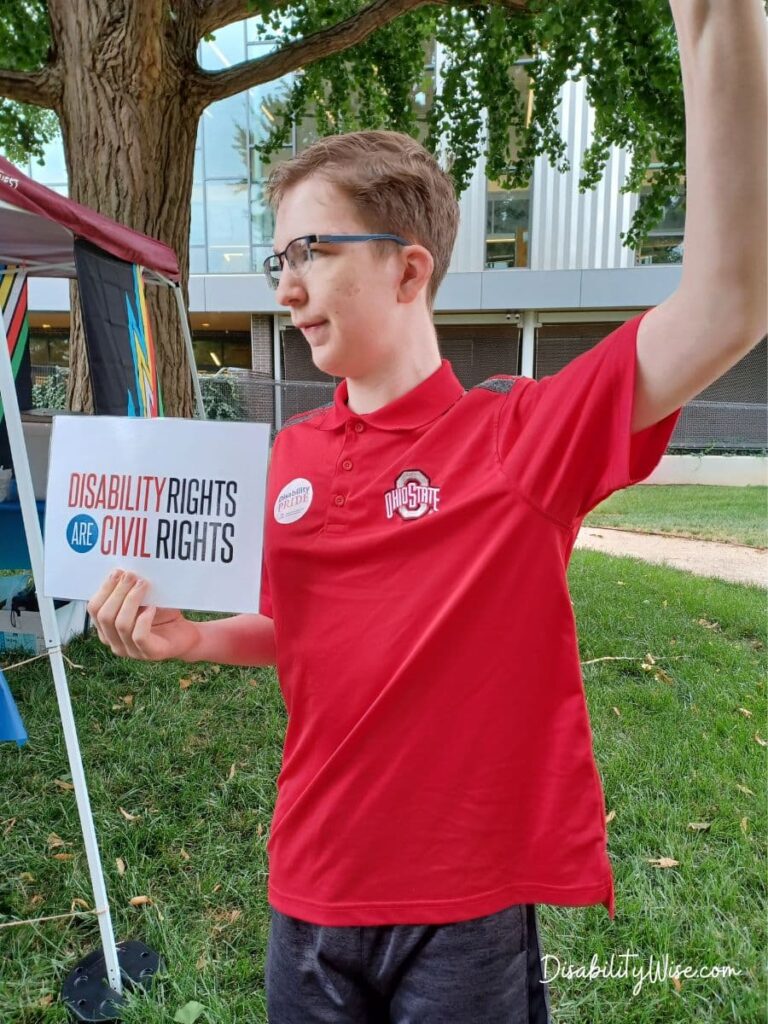
Mom of 3 children on IEPs: “I wish I had known how important advocating was for your loved one’s needs within the educational, medical, and social systems. I have had to grow more confident in this over the years. I have three children on IEPs — all with different levels of needs. Speaking up for what will be best for them is always my role as their main advocate!”
It’s Okay to Ask for Help
Moms shared that they wish they had known that it’s okay to ask for help. Whether it’s from family, friends, support groups, or professionals, reaching out for assistance is a sign of strength, not weakness.
Mom of a teen son diagnosed with autism at 18 months: “After a couple of hospital scares, it made me realize I needed help. What would happen if I were no longer here to help my son? I needed to give myself some time outside the world of autism and to share more with my husband. Finding a reliable respite caregiver helped tremendously. It helped my relationship with my husband, and it gave me a chance to look at my life from a different viewpoint. When you are dealing with a disability all day, every day, you lose some perspective of the world outside.”
Celebrate Every Milestone (especially the small ones)
It’s so easy in our society to always be chasing the big achievements. Remember to celebrate every milestone, especially the small ones!
These moments often go unnoticed but are the most significant in our children’s lives. By acknowledging and celebrating these small victories, our mindset will shift towards gratitude.
Remember, no matter how insignificant it may seem, every milestone contributes to our child’s growth and progress.
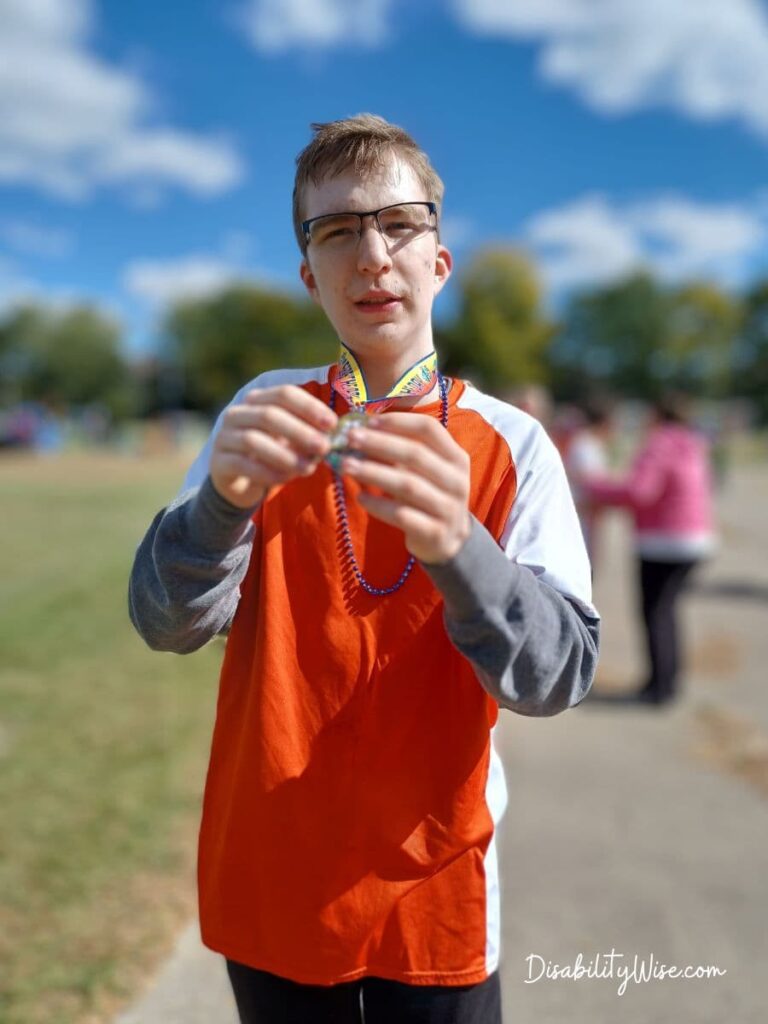
Mom of three children on IEPs: “Acknowledging and celebrating every achievement, no matter how small, is huge!”
Mom of teenage daughter: “I celebrate the little things. One year, my daughter came home with a detention for talking too much during class. I lost it and started laughing because they said she would NEVER talk!”
Embrace Flexibility
Being flexible is super important on this unique journey. Being open to changing plans, schedules, and expectations can make things easier for everyone. The ability to change course when challenges pop up requires understanding and patience, but don’t worry! Your child will probably give you lots of chances to practice. 😉
Mom of three children on IEPs: “Plans may need to change, and that’s okay. Adaptability is essential on this journey. Other families may not understand, but we have had to learn to do what works best for our family and thrive in that. And sometimes it changes minute by minute or day by day!”
If flexibility is a struggle during the holidays, check out some easy tips here.
Address Challenges Early
Getting the right tools and resources early can sometimes make a huge difference in a child’s growth. It can transform struggles into stepping stones, allowing them to build confidence and skills that will serve them throughout their lives.
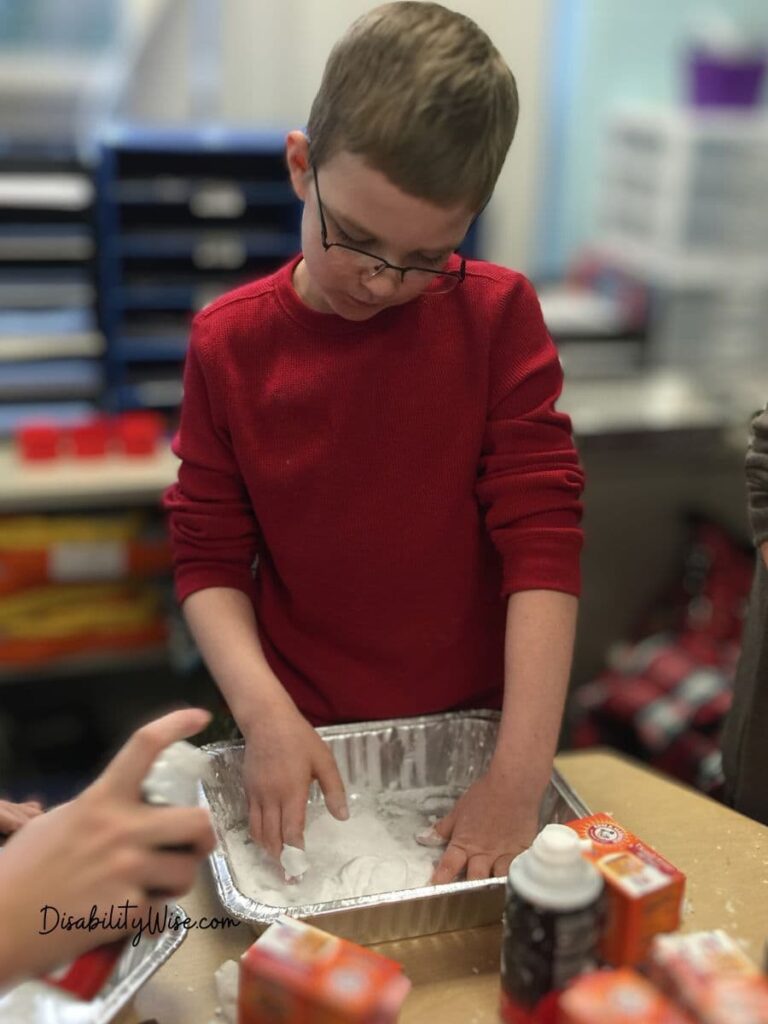
Mom of a teen son diagnosed with autism at 18 months: ‘A topic that seemed to keep coming up in all the books I would read was this mention of a “window”. There’s a window of time in the early years where the more therapy and parent engagement that happens, the better chance my son has of learn skills necessary for his lifetime. So, at the age of two, my son started with thirty hours of ABA therapy, one hour of OT, one hour of speech, two hours of swimming lessons, and lots of outings, playing, and reading.”
Mom to a 15-year-old son with autism: “If I had known that he would not be able to do simple things, I would have pushed him more in the early years of his life. Expressive communication is the biggest issue he currently has, and, now at age 15, that issue has turned into frustration, which has led to anger and, more recently, rage. I would have pushed the schools to give him more hours of speech, placed him in a school that focused on communication, or in a school that served students with neurological disabilities. I can’t imagine what it would be like not to be able to express my thoughts, feelings, wants, and needs.”
Mom to an adult son with complex needs: “Increasing the number of interventions and therapies and the frequency in which they go, does not necessarily equal faster results. I had to realize that results can not be forced. They will come in their time.”
Learn to Ride the Waves
When your child first gets a diagnosis, it’s normal to feel a mix of emotions. It’s okay to feel overwhelmed and worried, to cry and cuss, and to feel like life isn’t fair.
Those feelings don’t necessarily go away, but with the right resources, support, and community, with time, they won’t feel as intense.
Stay strong, believe in yourself, and remember, you’re doing your best for your child.
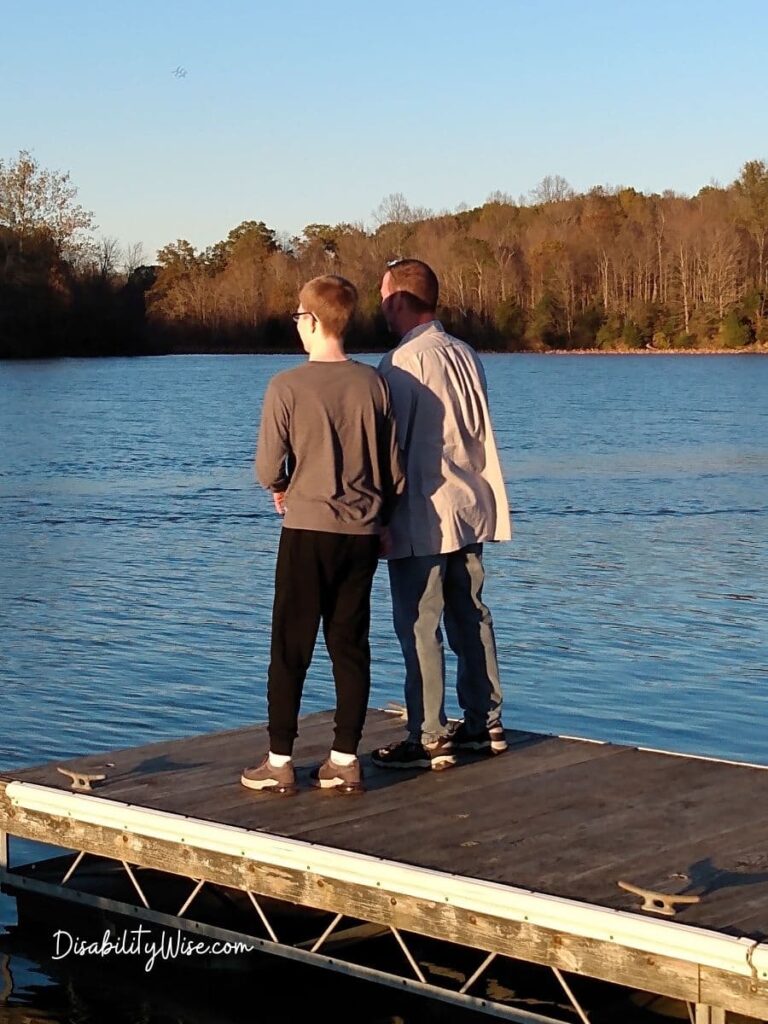
Dad to a 17-year-old son with a rare syndrome: “I didn’t realize how complicated this journey would be. No one can tell you how it’s going to turn out — will he be able to read or write, have a job someday, or live on his own? You just have to help them the best you can, then wait and see. And as a man, that is hard. We like to fix things, and I couldn’t fix this (not my son, but the situation). My advice is not to come into this thinking you can “fix” anything. Instead, you have to learn how to ride the waves and balance all the ups and downs as they happen.”
Mom of teenage daughter: “It’s a marathon, not a sprint. It’s one year, one month, one day at a time. Don’t wish away the here and now — relish in the moment. I kept thinking that at every stage she would meet certain expectations. Be sure to keep the expectations in check, but don’t stop dreaming.”
“This journey is filled with grief, sadness, jealousy, confusion, anger, guilt, loneliness, and fear. All these emotions are normal. They will ebb and flow through the years. Use what you have learned and pass it on to younger families on the same journey, and when possible, be a beacon of hope for them.”
Final Thoughts
Thanks a bunch for reading! I hope these little gems make navigating this life a bit smoother for you.
If you have any “If only I’d known” moments to pass along, I’d love to hear them! Be sure to leave a comment.
SHARE ON:


